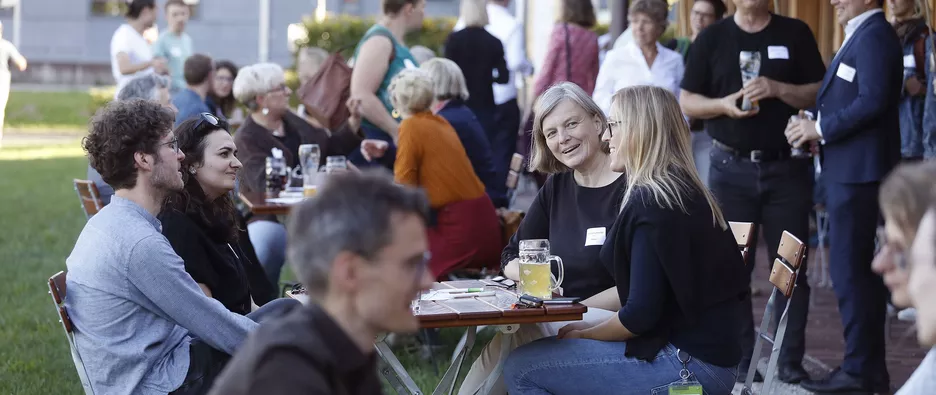(copy 1)

AgroMissionHub
AgroMissionHub (AMH) is a joint initiative of the Technical University of Munich (TUM), State Research Center for Agriculture (LfL) and Weihenstephan-Triesdorf University of Applied Sciences (HSWT). Research projects carried out jointly by the three organizations can be applied for via the AMH as a platform. The AMH is managed by a steering committee with equal representation and decides democratically on the allocation of funds according to defined criteria. The funding is basically intended as start-up financing and is intended to support the selected project consortia in acquiring further third-party funding.
Projects: Joint Research for Innovation in Agricultural Sciences
The research projects should address current issues from the - broadly defined - agricultural sciences and can cover all levels of maturity from basic research to application. In addition to the production of agricultural science findings, the aim is to strengthen cooperation between the three institutions. All locations of the three partners are explicitly included. The pooling of expertise across the institutions, locations, scales, focal points, degrees of application and methods is almost unique worldwide and therefore predestined for joint cutting-edge research.
Funded cooperation projects:
- APART: Agricultural Plants for Pollinators
- AMAIzed: Multi-tasking AI-assisted Robot system
- BioBayGrün: Biodiversity changes in Bavarian permanent grassland
- Grazing: Impact of grazing regimes and woody encroachments on carbon storage and biodiversity in grassland ecosystems
- GWECAs: Identification of resistance genes for plant breeding with genome-wide-epidemiological-climatic analyses
- NEOM: Nitrogen availability in agricultural soils via organic matter turnover using thermodynamic methods
- Veitshof laboratory and testing station: Concept Creation
- VerticalPharm: Vertical Farming for Medicinal Plants
Events: Agricultural Sciences in Exchange
The aim of the AMH is to network agricultural research at TUM, LfL and HSWT. In future, joint event formats will be developed to bring researchers from the three institutions together. A first attempt was made with the Science Dating in September 2023. The follow-up report provides impressions of the event.